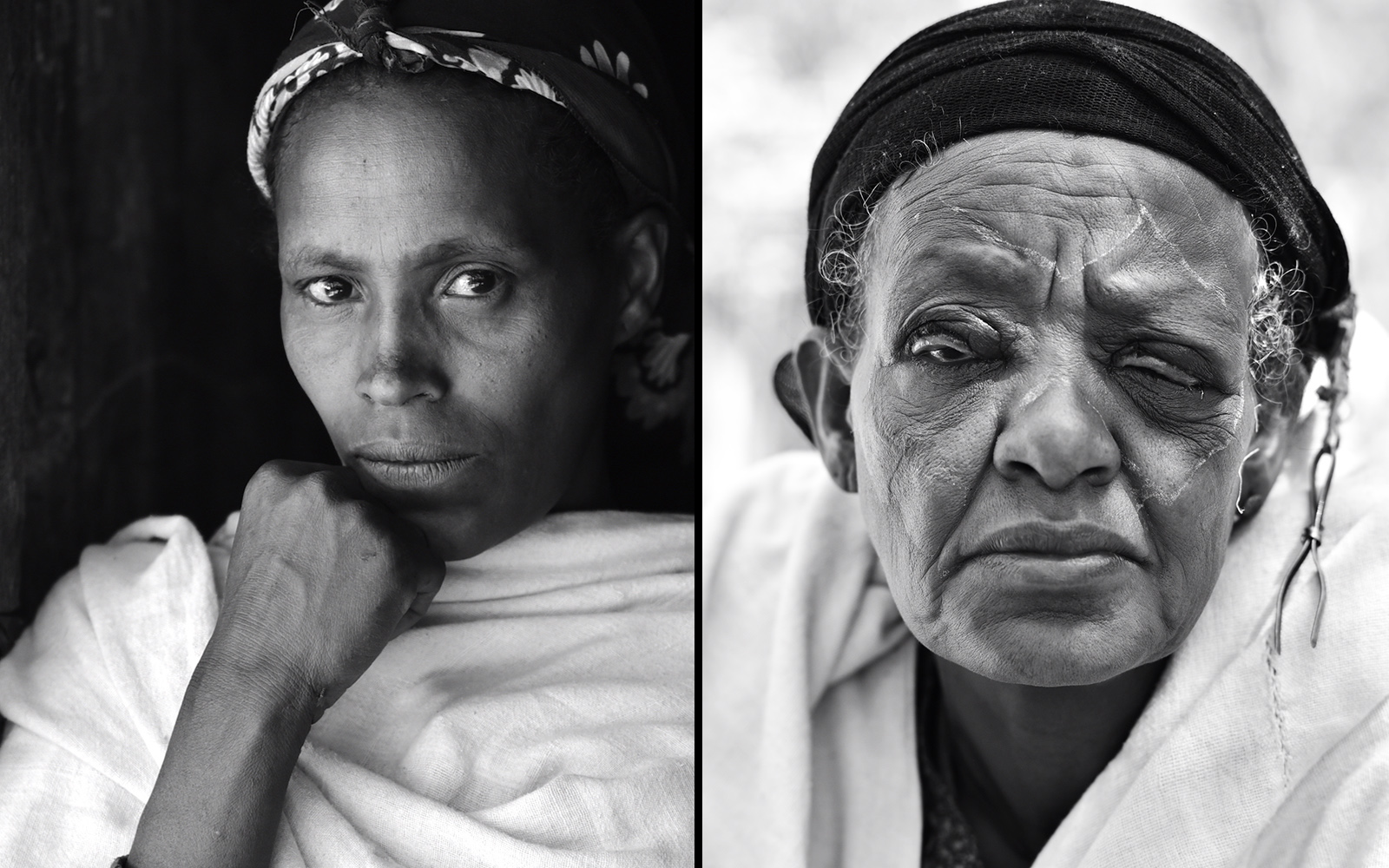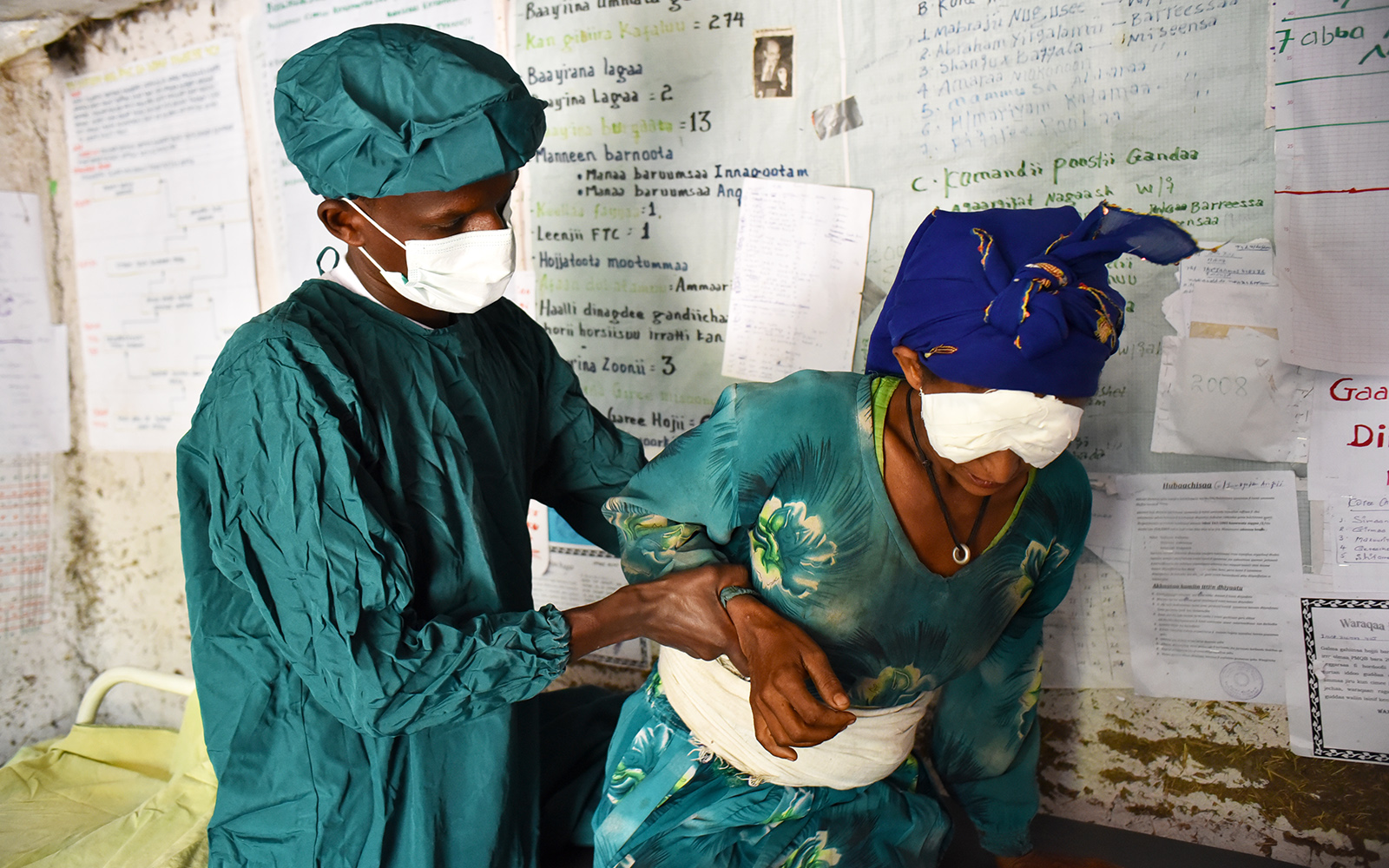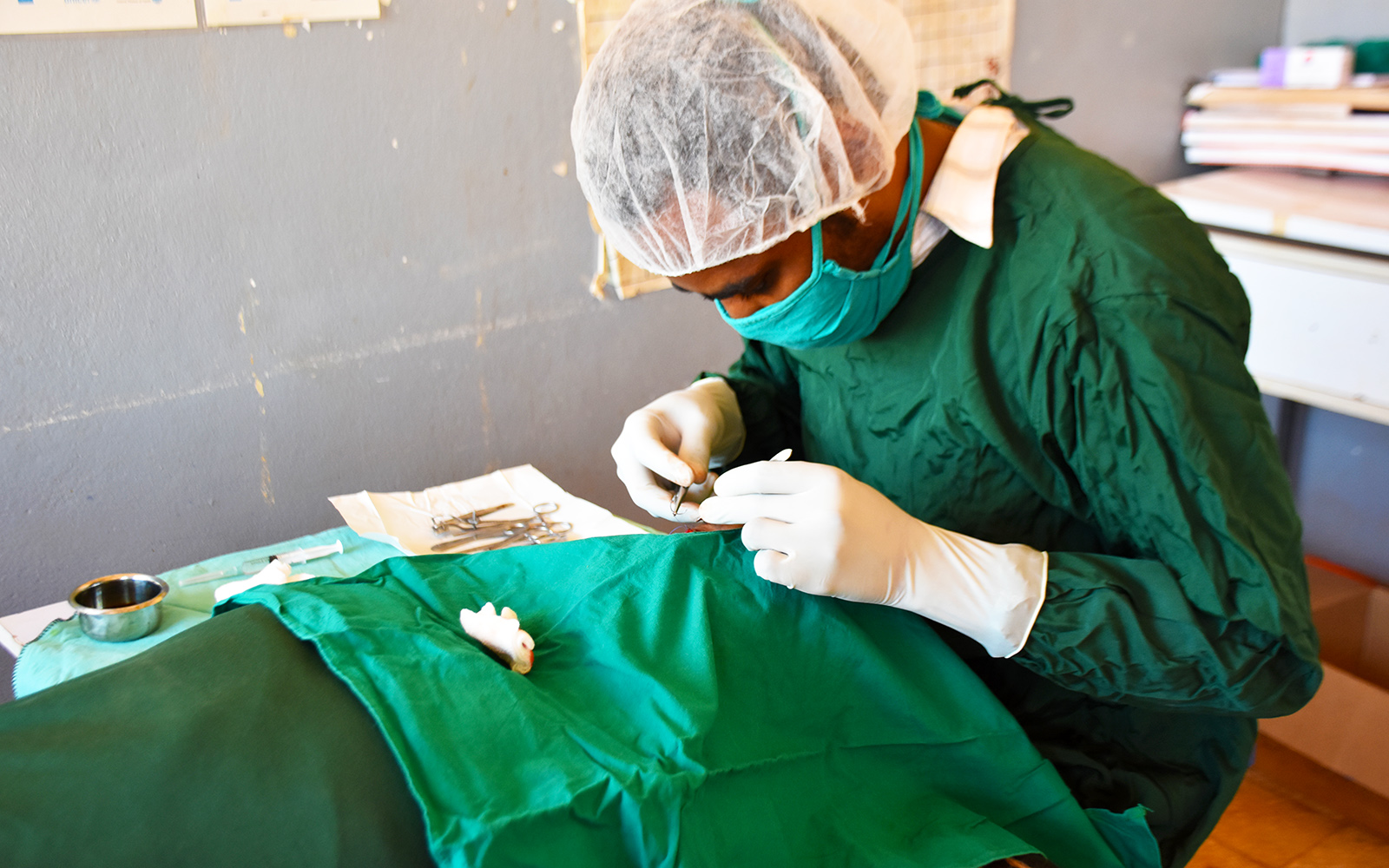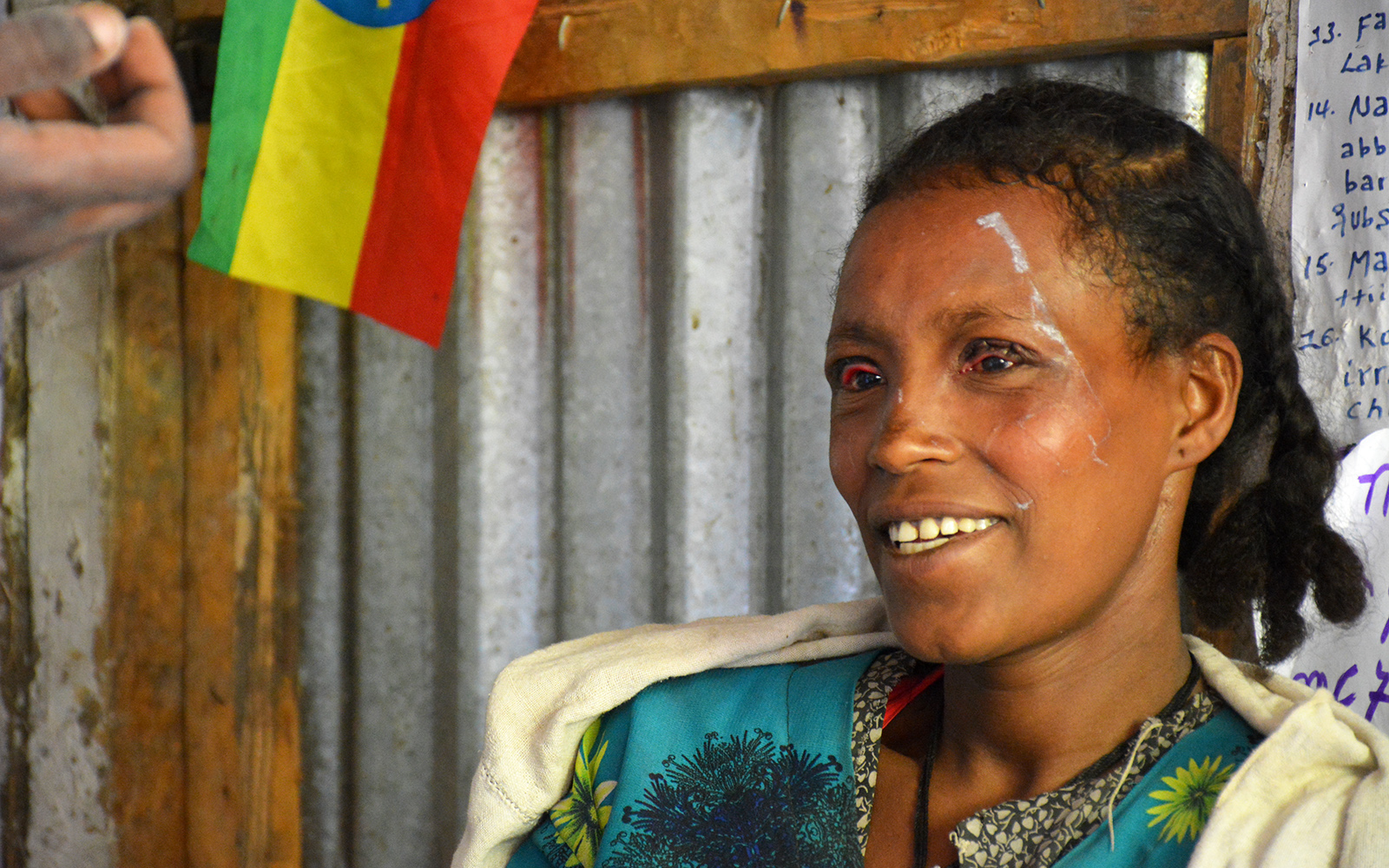Poor sanitary conditions and lack of healthcare in Ethiopia can lead to trachoma, which is painful and potentially blinding. But more than 6,000 people have been saved from this terrible condition thanks to two extraordinary health care workers.
Large grey rocks blanket the road and surrounding area, creating a barren, moonlike landscape. It is basalt, left over from volcanic eruptions more than 20 million years ago – a stark reminder of the ancient and harsh land that is Ethiopia.
We are in Oromia province, outside the town of Fiche, about three hours' drive north of Addis Ababa.
Smoke rises from cooking fires revealing encampments and small villages perched perilously on the steep sides of a magnificent valley. The landscape is inhospitable and people here live in immense poverty.
This is the backdrop to the dry and dusty story of trachoma and its painful conclusion: trichiasis.
 Trachoma sufferers, Debash (left) and Belaynash (right). Photos: Matthew Smeal
Trachoma sufferers, Debash (left) and Belaynash (right). Photos: Matthew Smeal
What is trachoma?
Trachoma is a condition that many have never heard of but which is the leading infectious cause of blindness in the world.
In basic terms, it's a bacterial eye infection that inflames and scars the inner surface of the eyelids.
Repeated trachoma infections over years can cause trichiasis, an eyelid abnormality where the eyelashes point inwards to touch the eyeball. This causes pain and inflammation of the cornea and can lead to blindness.
Trichiasis sufferers like Debash and Belaynesh (above), carry tweezers with them to pluck their eyelashes out.
Belaynash had at least 40 eyelashes scratching her cornea, and the result was severe swelling and pain. To relieve the pain, she kept tweezers close so she could epilate her eyelashes.
Why does trachoma occur?
Temesegen Hailu, an eye health nurse trained by The Fred Hollows Foundation to perform Trachomatous Trichiasis (TT) surgery, thinks there's one predominant reason for the high prevalence of trachoma in the region.
There is not a lot of water [for face washing and personal hygiene]. To reach water people have to travel a long way.
- Temesegen Hailu – eye health nurse trained by The Foundation
"Because of the high altitude, it is hard to reach water. If there is no water, no toilet in the house, [and] no facilities, it can affect the prevalence [of trachoma]."
The remoteness of these villages creates a double-edged sword: it's hard to establish effective health services and it's equally hard for people to access any health services that aren't close by.
How do we get rid of trachoma?

One simple solution is for small health teams with two or three eye health workers to visit remote villages for a few days at a time. In a short time-span, these teams can screen, operate and save the sight of many people.
Temesegen and fellow eye health nurse Kebede Shebiru form the basis of one of these teams.
If the surgeon does not come here, these people will become blind.
- Temesegen Hailu – eye health nurse trained by The Foundation
Kebede explains further. "There is less infrastructure [and] there are places where vehicles cannot access… sometimes we have to walk – without food, without water."
It’s not an easy task, but the pair don't let the difficulties of getting around stop them. "We are serving our community and we are are happy about that."
Two people, 6,000 surgeries
 Kebede performing TT surgery on a patient. Photo credit @ Nazif Jemal
Kebede performing TT surgery on a patient. Photo credit @ Nazif Jemal
Kebede and Temesegen have performed nearly 6,000 TT surgeries between them over the past three years.
That's 6,000 people who are free of from this disease because of one remote team – 6,000 people who might have gone blind.
"Sometimes people approach me in different places like markets and they hug me," Kebede said.
"I ask myself, 'Did I do this?' It makes me very happy."
Temesegen has had similar experiences. "People at the market got down to my leg and kissed my hand," he said.
 Debash, one of the recipients of TT surgery. She's finally free from pain.
Debash, one of the recipients of TT surgery. She's finally free from pain.
"I am very, very grateful for the work I am doing for The Fred Hollows Foundation.
"It is satisfying because we know we are relieving someone from going deeper into poverty."
The effects of this surgery are far-reaching, but the moment of truth is when a patient realises they are free of debilitating pain. Kebede and Temesegen have seen moments like this thousands of times - but the magic never fades.